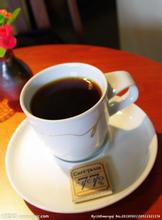Introduction to Rwanda Malaba Coffee grown in fertile volcanic soil on high-altitude hills
In 2000, the Mayor of Malaba requested development assistance from the National University of Rwanda (UNR), which is located near the city of Butare, and the following year, the National University of Rwanda assisted in the establishment of the Joint strengthening Rwanda Agricultural Partnership (PEARL). The PEARL project is also supported by several organizations: the United States Agency for International Development (USAID), Michigan State University, Texas A & M University, and many other Rwandan organizations, including the National University of Rwanda, the National Agricultural Laboratory (ISAR) and the Gejali Institute of Technology Management (KIST). In February 2001, PEARL began working with Abauzam Gamby to improve the quality of coffee to meet the standards of the professional coffee market in the United States, and then sell the coffee to the United States.
The first problem for Malaba coffee farmers is to set up a cleaning station. The coffee fruit must be transported to the cleaning station to wash the sugar under the skin of the coffee bean within 12 hours after picking, otherwise the flavor of the coffee will be greatly damaged. In July 2001, with funding from UNR, the Ministry of Culture and Industry of Rwanda (Office des Cultures Industrielles du Rwanda,OCIR-Caf é), ACDI/VOCA and ISAR, they set up the first cleaning station near the main road in the Cyarumbo district. However, the cleaning station was not opened until the harvest time, so only 200 kilograms (441 pounds) of the harvest were washed that year. However, the result was surprisingly good. In 2002, the cleaning station was upgraded to supply more coffee processing. ACDI/VOCA is responsible for funding the construction of pipelines to bring in Mount Huye mineral water and help improve the efficiency of cleaning stations. The pipeline was opened in March 2002.
During the 2002 harvest season, Rwanda introduced a new certification system to ensure that coffee beans shipped to cleaning stations are of proper quality. About half of Abauzam Gambi's members are certified, and cooperatives are able to find buyers in professional markets in Europe and North America.

Important Notice :
前街咖啡 FrontStreet Coffee has moved to new addredd:
FrontStreet Coffee Address: 315,Donghua East Road,GuangZhou
Tel:020 38364473
- Prev

Ethiopia coffee producing area introduction Sidamo, Harar and Yega snow fly varieties
Ethiopia's coffee producing regions are Sidamo, Harrar and Yirgacheffe. Sidamo and Harrar are provinces and divisions. Sidamo is located in the south of Ethiopia and adjacent to Kenya. Harrar borders Somalia in the east of Ethiopia. Although Yirgacheffe is a small area in Sidamo region, due to soil composition and water content, etc.
- Next

Coffee Flavor producing area of Tanzania introduces the Fire area of Jilimazaro Mountain in the Northern Highland
Coffee is one of the main cash crops in Tanzania, ranking fourth after cotton, tobacco and cashew nuts, mainly sold to Italy, Japan and the United States. Coffee exports play an important role in the national economy of Tanzania. Tanzania's main coffee producing area is located at the foot of Mount Kilimanjaro, which is rich in volcanic soil and coffee trees planted here.
Related
- Does Rose Summer choose Blue, Green or Red? Detailed explanation of Rose Summer Coffee plots and Classification in Panamanian Jade Manor
- What is the difference between the origin, producing area, processing plant, cooperative and manor of coffee beans?
- How fine does the espresso powder fit? how to grind the espresso?
- Sca coffee roasting degree color card coffee roasting degree 8 roasting color values what do you mean?
- The practice of lattes: how to make lattes at home
- Introduction to Indonesian Fine Coffee beans-- Java Coffee producing area of Indonesian Arabica Coffee
- How much will the flavor of light and medium roasted rose summer be expressed? What baking level is rose summer suitable for?
- Introduction to the characteristics of washing, sun-drying or wet-planing coffee commonly used in Mantenin, Indonesia
- Price characteristics of Arabica Coffee Bean Starbucks introduction to Manning Coffee Bean Taste producing area Variety Manor
- What is the authentic Yega flavor? What are the flavor characteristics of the really excellent Yejasuffi coffee beans?

